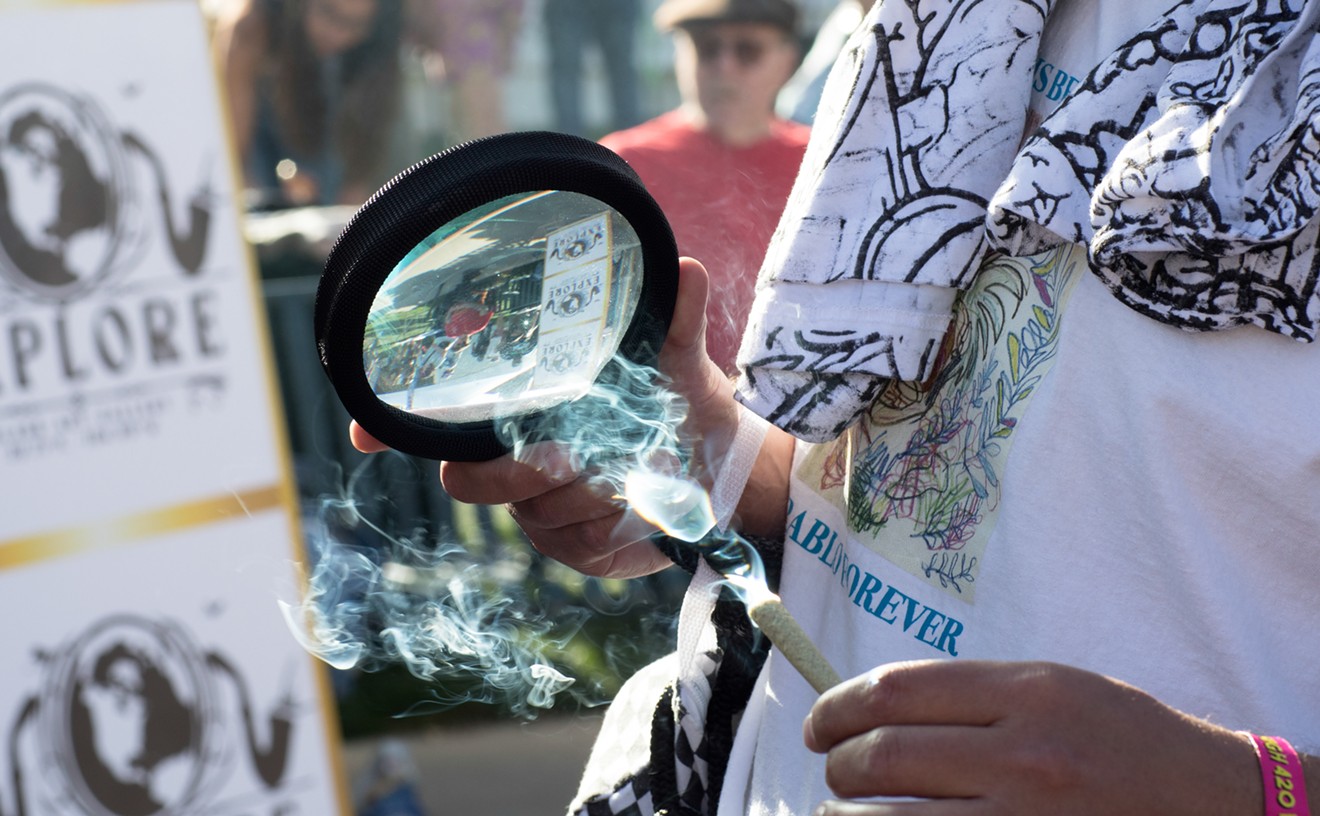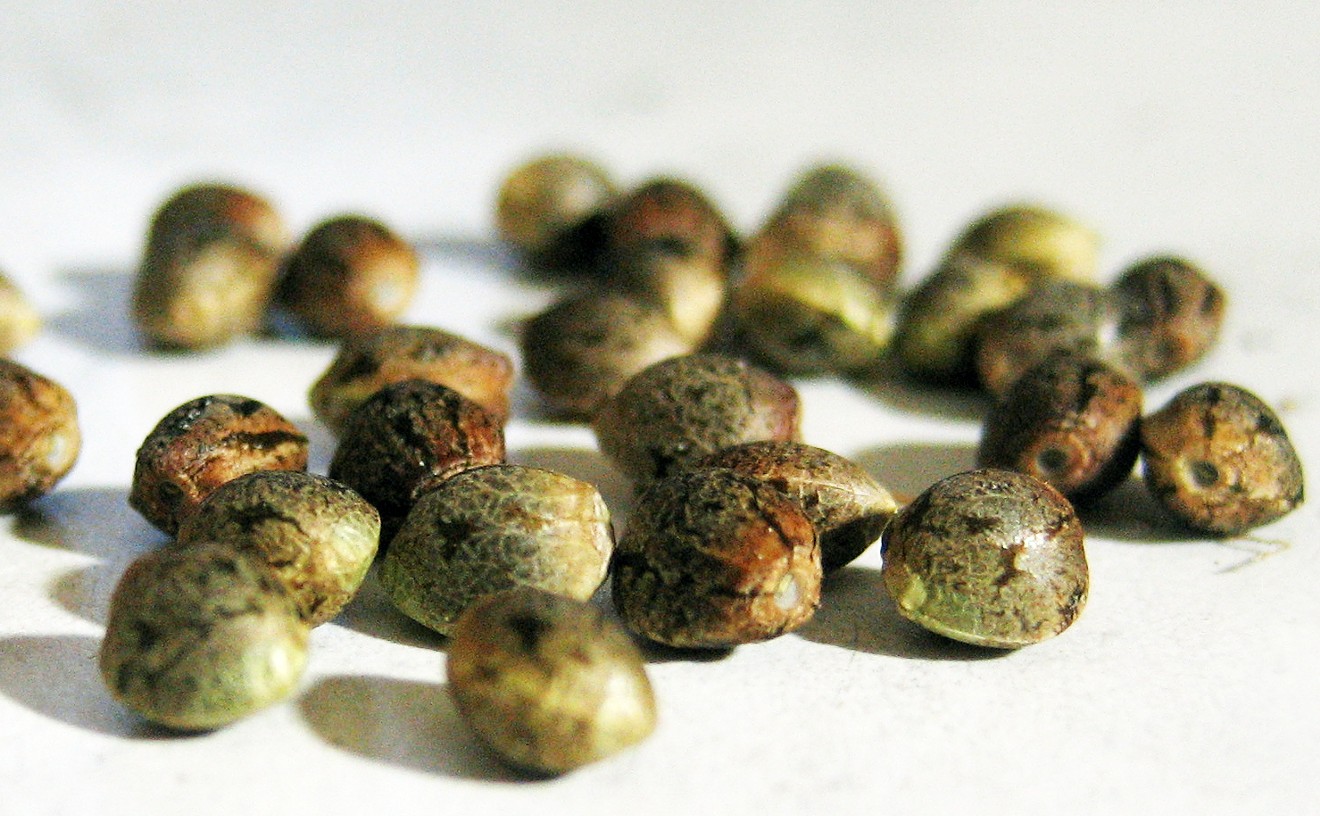Cannabis-friendly Colorado doctors want to help you understand how difficult it is to measure cannabis impairment by testing your blood and saliva – both before and after you get high. Cannabis Clinicians Colorado, a nonprofit group dedicated to supporting caregivers, patients and physicians, will hold a public research event this weekend in Lakewood to educate consumers on impairment, and how inadequate current state systems are.
How to accurately measure impairment has been one of the largest problems plaguing the legal cannabis industry; it confounded health and law-enforcement officials long before recreational legalization began, but after Amendment 64 passed, the state had to develop protocols to measure impairment no matter how little information was available.
The state currently labels impairment as a blood limit of five nanograms of THC. However, nanograms aren't necessarily indicative of impairment, notes CCC event organizer Melanie Rodgers. "For this, you can't regulate marijuana like alcohol, because we don't have a proper system in place," she says. "How do you rate impairment? I think a lot of patients have five nanograms in them or more at all times, whether they're impaired or not."
Westword's William Breathes tested higher than that in 2011 when he got his blood drawn fifteen hours after he'd last smoked cannabis. The doctor noted that Breathes, a medical marijuana patient, was in no way incapacitated, but the THC level in his blood was 13.5 nanograms – nearly three times the legal limit today. Technology hasn't improved enough since then for Colorado to adopt new standards, though research continues on cannabis breathalyzers and other forms of detection.
CCC's event will use current testing methods, which rely on blood and saliva, on consumers and medical patients (21+) before any of them are impaired; the doctors will also test cognitive functions. The test subjects will then enter a private bus in which they're legally allowed to consume cannabis in any form; they'll log how much cannabis they consume and how they consumed it before getting off the bus for a second round of tests. Before-and-after blood and saliva samples will then be compared to see how accurate testing methods are at detecting impairment.
Rodgers says the study is partially funded by local dispensaries, which aren't allowed to donate to universities or scientific organizations that receive federal funding because of cannabis's Schedule I status with the Drug Enforcement Administration; an independent institutional review board will monitor the study and affirm its findings. "This is a chance for dispensaries to contribute to some of this. And it's a chance for the community to study itself," she says.
The event will take place on Sunday, August 27, from 10 a.m. to 5 p.m. at LeMay's Club Auto Colorado Car Museum in Lakewood. Former NFL player Marvin Washington, former Boulder County judge Leonard Frieling and cannabinoid expert Max Montrose will all be in attendance to speak and answer questions. Entry is free, but the price of the testing varies, and attendees are encouraged to sponsor the costs; learn more about pricing here.
[
{
"name": "Air - MediumRectangle - Inline Content - Mobile Display Size",
"component": "12017618",
"insertPoint": "2",
"requiredCountToDisplay": "2"
},{
"name": "Editor Picks",
"component": "17242653",
"insertPoint": "4",
"requiredCountToDisplay": "1"
},{
"name": "Inline Links",
"component": "18838239",
"insertPoint": "8th",
"startingPoint": 8,
"requiredCountToDisplay": "7",
"maxInsertions": 25
},{
"name": "Air - MediumRectangle - Combo - Inline Content",
"component": "17261320",
"insertPoint": "8th",
"startingPoint": 8,
"requiredCountToDisplay": "7",
"maxInsertions": 25
},{
"name": "Inline Links",
"component": "18838239",
"insertPoint": "8th",
"startingPoint": 12,
"requiredCountToDisplay": "11",
"maxInsertions": 25
},{
"name": "Air - Leaderboard Tower - Combo - Inline Content",
"component": "17261321",
"insertPoint": "8th",
"startingPoint": 12,
"requiredCountToDisplay": "11",
"maxInsertions": 25
}
]











